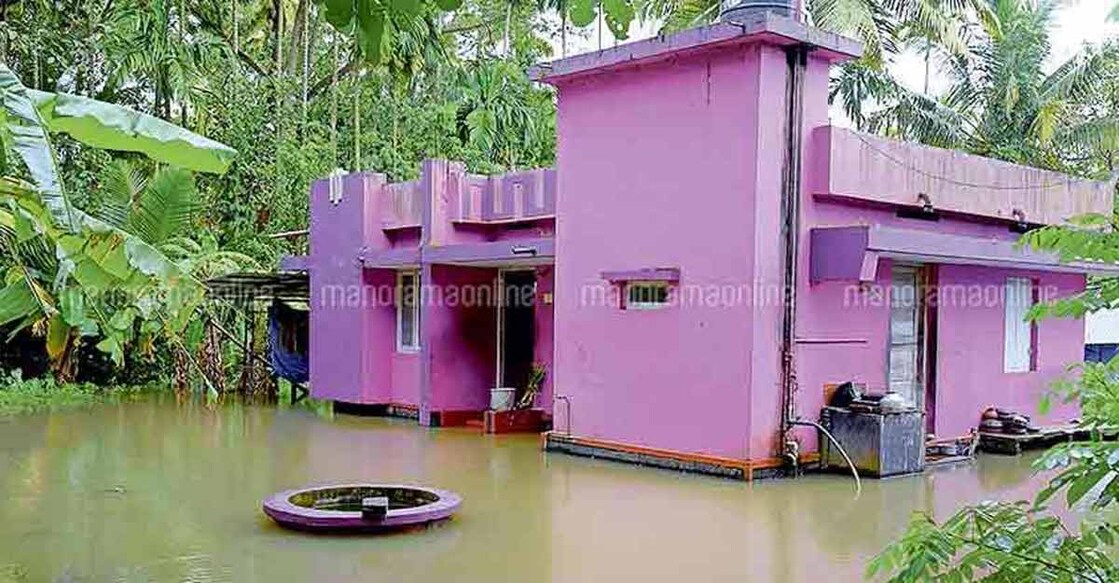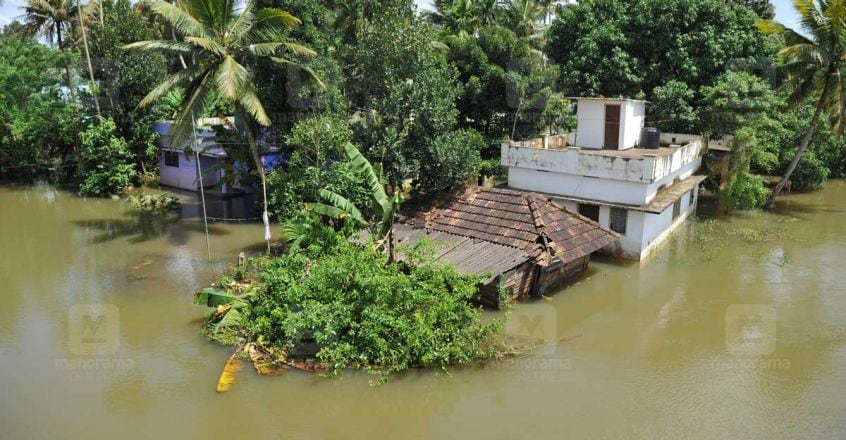Tips to keep your home safe while facing twin scourges of flood, COVID

Mail This Article
Kerala is braving yet another season of flood, for the third consecutive year. It was just like adding salt into the wound, as the state has already been fighting Covid-19. Onam, the harvest festival of the state is round the corner and many have been planning to celebrate the housewarming ceremony of their brand new houses during this time. So here are some tips to protect your house from the damages caused by floods.
The belt and the lintel of the house should be built perfectly to survive the floods. This would prevent the house from losing its sturdiness. Do not use wall papers in case your house is in a flood prone area. These wall papers, if damaged by the flood waters, cannot be salvaged. Similarly, furniture made of particle board too should be avoided. Though these furniture pieces look amazing with the stellar laminate works, they would become trash when they get wet.
Make sure to use high quality materials for wiring and insulation. Do not install the main switch underneath the stairway or in any corner. It is better to install them on the wall, at least at a height of one and half meters from the ground. The electric switches on the ground floor should have a separate circuit. Cases of tripping could be avoided if ELCB is done this way.
It is better to use subversive motors for open wells. Always install garden lights on posts that are at least 2 feet tall. Instead of using wires and pipes, underground armed cable could be used for wiring the exterior light fittings. Place the wiring junctions a few feet above the ground level. Similarly, the plugs too could be fixed at a height on the wall.
The outdoor units of the air conditioners are fixed on ground level in some houses. The system could be damaged if the house gets flooded. These units must be fixed at least at the height of the sun shade.
The inverter should always be placed on the upper floor. You could also place it under the truss if the house has a truss roof. Or you could arrange necessary facilities in the upper storey hall to place the inverter. The odour of the acid in the battery too wouldn’t make you uncomfortable if they are placed away.

Some people complain that the water from the drainage tank stains the house through the bathrooms. Building the bathroom floor at a height is the only solution for that. Or you could see whether an additional valve could be made in the bathroom.
Install foot lamps in the interiors only if they are necessary. Use timber and marine plywood of the finest quality for furnishing the interiors. Try to replace relatively old mattresses, motors and other home appliances.
Fixing net doors could not only prevent mosquitoes but also reptiles and other insects. Do not litter food wastes in the house. This would invite rats and other rodents into the premises. These rodents could damage the foundation of the house. The foundation could then get further damaged when the flood water rises.
Insert rings in the well and plaster the upper part nicely. Build the compound wall at least at a medium height. Make sure to fill in the holes in the place where the motor is kept near the well, using cement.

